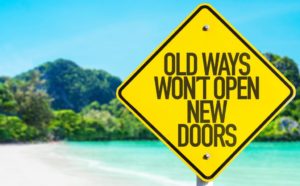
As a parent struggling to raise children with neurobehavioral conditions, or brain differences as we say at home, daily life is often fraught with challenges. Parents of neurotypical children can rarely relate to our struggles or the unconventional way we now parent our children. The standard parenting trope seems to rely heavily on shaming, blaming and judging parents and children who deviate from whatever the current “good parents/good kids” looks like. Good parents don’t let their kids do___ . Good parenting looks like ___. You can fill in the blanks.
When you’re caught in a riptide your normal instinct to swim straight back to shore is the very thing that will take you further out to sea and possible death. Until you stop fighting, change course and swim parallel to the shore you’re in a no-win situation. People standing on the shore unaware of your circumstances may wonder why you’re not swimming correctly. “He’s not a very good swimmer. Why doesn’t he just do it the right way?” they may think.
Parenting children with neurobehavioral conditions can feel like this. As with getting caught in a riptide, you can keep doing the things that take you further out to sea, further away from your goal of connection, love and a healthy child, or you can try something different, even if it’s against what you’ve always known to be right and what other people believe is right.
What if the standard parenting requirements you must meet to be a “good” parent don’t work for your neurodiverse child? What if those very requirements are harmful to your child? What if school, playdates, chores, punishments, and rewards escalate the worst behaviors in your child because of their brain differences?
So here we are trying differently, all of the time. The things we do and don’t do with our children leaves us open and vulnerable to a sea of judgment from the outside world. In the past, it has made me weary and fearful so I stayed small and quiet. I have isolated myself as much as possible to avoid the pointed remarks and judgment that seem to be inevitable when you parent unconventionally. But like a lobster, I have outgrown that shell. It hurts too much to stay that small anymore.
Recently the “violent video games are bad and cause damage” argument has resurfaced in a big way. A friend posted something a few months ago that struck me right in the gut. In her mind, it is so clear that video games with any shooting at all are harmful. She just cannot understand how parents could allow such a harmful activity to continue. For our children, some of these very games have been the catalyst to their growth and a tool to help them navigate the world.
My boys have many, many challenges and struggle with most typical things you and I don’t even think twice about, but video games…they are good at those. While playing Fortnite they are making connections with other children. They have friends and feel valued. My boys brains process dopamine much more rapidly than typical brains. To get that dopamine hit their brains crave they have often sought it out through negative behaviors like fighting…now they turn to the pleasure-inducing game they love. I much prefer the video gameplay. My husband often plays with them and they love that time together. This is a world they understand and can navigate well. In their games, they can do things that aren’t always possible for them in the outside world. In the games, they can multitask, strategize and work as a team. They have learned to try again even when it’s hard. They feel confident in their abilities and know they bring value to any team they play with.
There are many other instances like this for us. The outside world and its expectations are not an appropriate fit for my children. So here we are trying to stay afloat and minimize damage until we can get back to shore. We do things radically differently for our children and we will continue on this path to meet their needs to the best of our abilities. We will have failures and successes, at times we may get pulled further out to sea than we had planned. We will change course over and over again, I suspect. We will be met with judgment and shame but I’m hopeful more people on the shore will see us and recognize our struggle and cheer us on until we can reach safety again.

